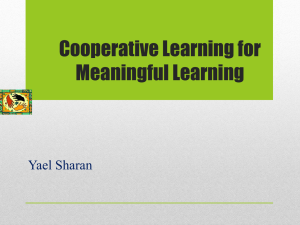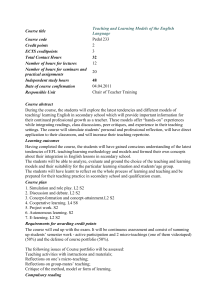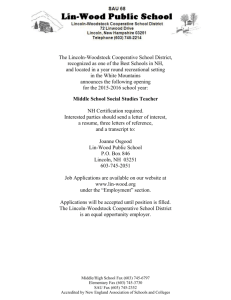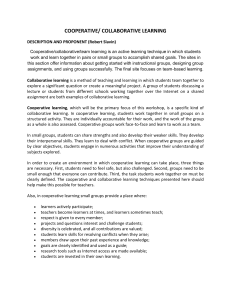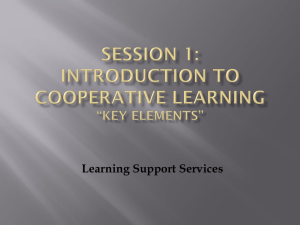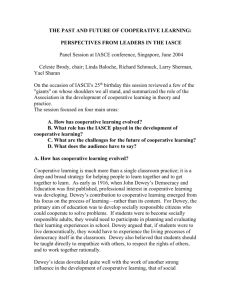Planning a class session
advertisement
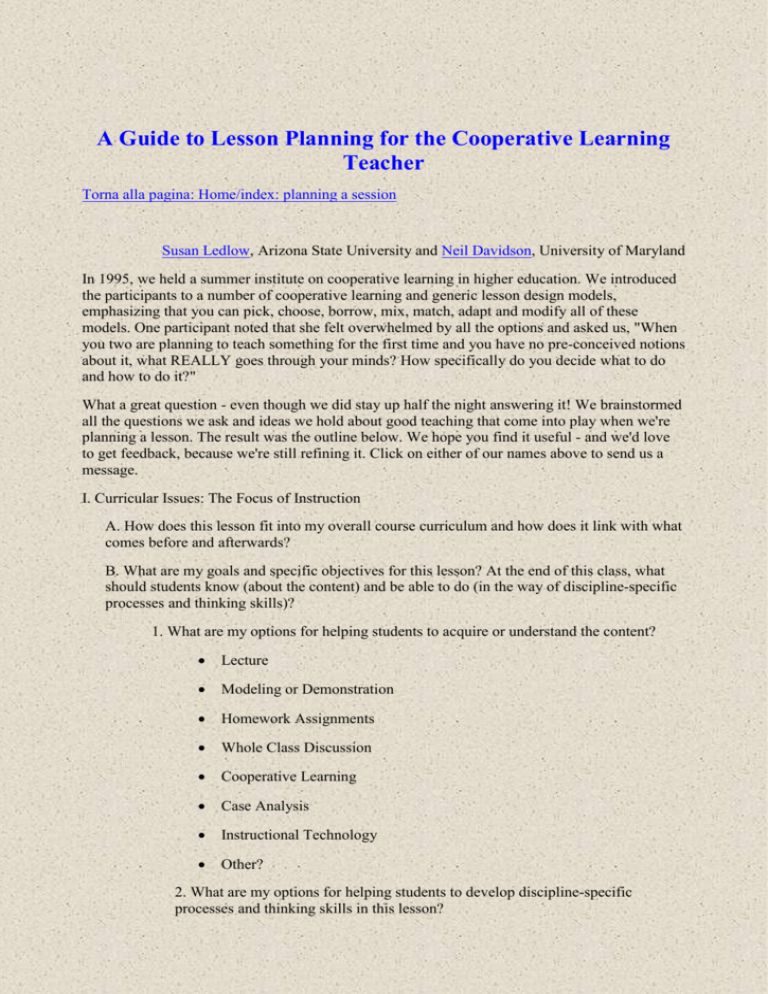
A Guide to Lesson Planning for the Cooperative Learning Teacher Torna alla pagina: Home/index: planning a session Susan Ledlow, Arizona State University and Neil Davidson, University of Maryland In 1995, we held a summer institute on cooperative learning in higher education. We introduced the participants to a number of cooperative learning and generic lesson design models, emphasizing that you can pick, choose, borrow, mix, match, adapt and modify all of these models. One participant noted that she felt overwhelmed by all the options and asked us, "When you two are planning to teach something for the first time and you have no pre-conceived notions about it, what REALLY goes through your minds? How specifically do you decide what to do and how to do it?" What a great question - even though we did stay up half the night answering it! We brainstormed all the questions we ask and ideas we hold about good teaching that come into play when we're planning a lesson. The result was the outline below. We hope you find it useful - and we'd love to get feedback, because we're still refining it. Click on either of our names above to send us a message. I. Curricular Issues: The Focus of Instruction A. How does this lesson fit into my overall course curriculum and how does it link with what comes before and afterwards? B. What are my goals and specific objectives for this lesson? At the end of this class, what should students know (about the content) and be able to do (in the way of discipline-specific processes and thinking skills)? 1. What are my options for helping students to acquire or understand the content? Lecture Modeling or Demonstration Homework Assignments Whole Class Discussion Cooperative Learning Case Analysis Instructional Technology Other? 2. What are my options for helping students to develop discipline-specific processes and thinking skills in this lesson? Modeling or Demonstration Homework Assignments Whole Class Discussion Cooperative Learning Case Analysis Instructional Technology Guided or Independent Practice Other? II. If I Decide To Use Cooperative Learning... A. How Do I Go About Designing a Cooperative Lesson? 1. Are there pre-designed structures, lessons, or designs (e.g. Jigsaw) that fit my needs? 2. Are there existing designs that I can modify or adapt? 3. Are there lessons developed by other teachers that I can use? 4. Do I need to create a cooperative learning lesson from scratch? If so, How will I foster positive interdependence? How will I foster individual accountability? How will I foster equal participation? B. What About Contextual Issues? 1. What is the current state of the classroom climate? Do we need a classbuilding activity? 2. How are my teams functioning, and would a teambuilder or team processing activity be useful? 3. Are there particular social skills or roles that would facilitate working together in today's cooperative procedure? If so, how will I address them? Part III. Assembling the Lesson A. What Might Be Considered in the Way of Specific Design Elements? 1. Initial focus, warm-up, or motivational introduction 2. Review 3. Checking for understanding 4. Closure/synthesis/summary Reflection on content and thinking skills Seeing both the forest and trees B. How Do I Put It All Together? 1. Create an agenda 2. Estimate timelines for the agenda 3. Create clear written instructions for students 4. Create or gather and reproduce needed materials 5. Arrange for needed equipment 6. Hope that it works! 7. Reflect, Assess, and Refine CCL |Home Copyright 1995, Susan Ledlow and Neil Davidson. Used with permission.

